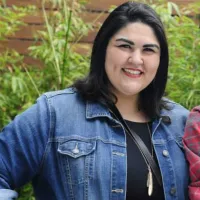
Diversity Spotlight: One on One with Dr. Saul Villeda
Before I first stumbled into a research laboratory in college, I never imagined that I could or would end up pursuing a career in academic research. During the six years since I was captivated by the life sciences, I have taken an interest in how other researchers like me found themselves in this wonderful and challenging field. Diversity Spotlight is a new quarterly column where I will highlight the journeys of UCSF faculty who come from backgrounds that are traditionally underrepresented in academia.
Dr. Saul Villeda is an Assistant Professor in the UCSF Department of Anatomy and the Eli and Edythe Broad Center for Regeneration Medicine and Stem Cell Research. After earning a B.S. in Physiological Science from UCLA, Villeda went on to complete a Ph.D. in Neuroscience from Stanford University Medical School. Now, he is the Principal Investigator of a lab at UCSF studying the cellular and molecular mechanisms that promote the rejuvenation of the aging brain.
The following is a lightly edited transcript from an interview with Saul Villeda, the first faculty we interviewed for our Diversity Spotlight column.
Synapse: Can you tell us a little bit about your background before science?
Villeda: I was the first one in my family born in the United States — my parents are originally from Guatemala. They came in the early 70s, and then I was born here in the early 80s. They weren’t very educated, my mom finished high school but I don’t think my dad did. Going through school was kind of the first time for all of us and a bit of an adventure!
I was used to working, and trying to figure out how to pay bills with my family. We were dead broke. There was a couple times growing up that we were even homeless…I was always worried about, “How do we eat? How do we keep shelter?” Then I go to college [at UCLA], where you worry about different things because you’re studying and you have financial aid and scholarships. It shifts a little bit in terms of what you're worried about. Plus, now you’re in a place where most people probably didn’t have the same upbringing that you did.
I think the first two years were a bit difficult…It was in my junior year that I ended up in a physiology class. I loved it. I went to office hours, and the professor really liked that I wasn’t there just to get the answer for the test, but I was there because I was really interested in what they were doing…I think I piqued her interest, and she invited me to join her lab…That was the time I was recommended for the MARC program, which is this amazing program through the NIH to increase diversity. They pay your tuition and give you a stipend, which meant I could drop my three jobs and just do lab. That’s when they told me I should apply for a PhD, and I ended up going to Stanford.
Synapse: It seems like you had a lot of great mentors along the way in getting to where you are now. What is the best advice you ever got?
Villeda: You know, the funny part is that I had lots of really great mentors in high school and in college, and none of them could understand my background because none of them had gone through it, yet they managed to help me and give me the advice that I needed at the time.
The one thing I would say is, “Accept the advice regardless of where it’s coming from.” I think, especially being students of color or scientists of color or first-generation, sometimes we expect that the best advice might come from the person that looks exactly like you, and that isn't always the case. Sometimes the person that has a similar experience can be the best, perfect hug…That hug can mean a lot because they know where you are coming from, but it doesn’t necessarily mean that they’ll know exactly what is right for your career at that particular time. I think finding mentors for different aspects that you need at the time is really important. There are career mentors, there are mentors to learn to how to mentor, there are mentors that will keep you from going over the edge because you feel so lost or different or confused, but they are all equally good mentors.
Synapse: Your research focuses on aging. What would you say are the questions that broadly inspire your work, and what led you to this specific research area?
Villeda: Originally, as a developmental biologist, I loved development…There were these ridiculous experiments that were done back in the day, these ridiculously crazy experiments that were so informative…We now sometimes take for granted that someone had to discover [the answers to fundamental biological questions] in a really basic way… Those basic questions, almost crude maybe? I love them. I think they are amazing, incredibly informative, and meaningful, and I take that approach in the way that I do things.
One of the things my lab is known for is we connect animals together. We suture [young and old mice] together. It is a really basic idea: is there something in young blood that can reverse aging? Is there something in old blood that can promote aging? It seems like a basic, again almost crude, way of thinking about things: really basic experiments for simple questions that no one has asked.
Synapse: Fast-forwarding to where you are now… Is there anything about being or becoming a professor that was surprising or unexpected to you?
Villeda: It’s just insane! There are amazing things about it. The fact that you have control over the questions you ask is amazing. The fact that you get to decide your managing style, your mentorship style — that is amazing. Having said that, you also have to recognize, accept, and deal with your limitations. When I started, I had this idea that “this is the way I want to do things and it’s going to work for everyone.” But it might not [work], and you have to adapt. That is one of the more challenging things that I found: the fact that the mentorship and what worked for me and how I thrived is going to work for people, but it’s not going to work for everyone…That was something that was bit harder…but, I would do it again in a heartbeat. I’ve had such a blast.
Synapse: I know you’ve touched on some advice you would give to young scientists. Along those lines, what would you say is the biggest challenge in recruiting new young scientists into the field today, maybe in particular any challenges that are unique to those from underrepresented groups?
Villeda: Focusing in on where I come from and my background, which is poor people who are first-generation students that are also members of minority groups, one of the struggles I think that is very common is this idea that you don’t belong. It took a long time for me to deal with that, and I still deal with that now…“Did they really mean me? Am I good enough? Do I have enough data? Is it cool enough data?” There is a bit of that Imposter Syndrome…Growing up, when I was taking classes like biology or chemistry or calculus, I couldn’t go to my family or my parents and ask for their help.
There was more of my Mom learning English with me as I’m learning to read or my mom learning English watching Sesame Street with me. That is a very different experience than my mom helping me with my calculus homework. That continues as you go on into college or graduate school. That difference, you are very aware of it — even with things like a PhD. Things get hard, things don’t always work. I can call my family and they’ll understand frustration and they’ll understand hard work and they’ll understand long hours, but they won’t necessarily understand the idea that I’m starting to feel not smart enough…
I think we have to be, especially as faculty, aware that that exists…We have to tailor our responses and our way of thinking to really consider that and think of it as a real issue for people. This idea of not belonging, this idea of not being good enough, or a fear of failure. Everyone has it, but we don’t talk about it…and for some people that fear is amplified because it is on top of these other fears that are already there…
Getting a PhD inherently is lonely. It’s your project, your motivation, your question, your findings. You have your mentor and your PI who will give you help with interpretation and designing the experiment, but at the end of the day, [your PI is] not there. [Your PI is] not the one with the pipette… You are. Its your PhD and inherent in that is already a bit of loneliness. Add to that the idea of feeling like you already don’t belong. You amplify the problem. I think, as faculty, we just have to be more aware of that…How do we find the right mentorship for [these students]? It’s not that [those from underrepresented groups] aren’t smart enough or we aren't good enough or creative enough or talented enough… [However], I’ve seen a lot of people leave or not finish. A lot of brilliant people.
I wonder what findings are going to be delayed by people not actually contributing to a field where they would be very talented because maybe during [their graduate career] they felt alone. I think about this all the time. The problem is, I don’t have the answers.
For me, as a faculty member with this unique background, people sometimes think that I will have the answers. What I can offer is to listen and to tell you my experiences and there will be a lot of similarities, but maybe the way in which I react may be different…However, the more people like us — or that are broadly diverse — the more of us there are, the more experiences you’ll be able to learn from, the more experiences you’ll hear. Maybe ones that are really similar to yours or maybe a response that you can identify with [at that moment]? I am one person, but imagine if there were ten of us?
One of the 10 probably has some good idea that will resonate with you. That is the importance of increasing diversity.



